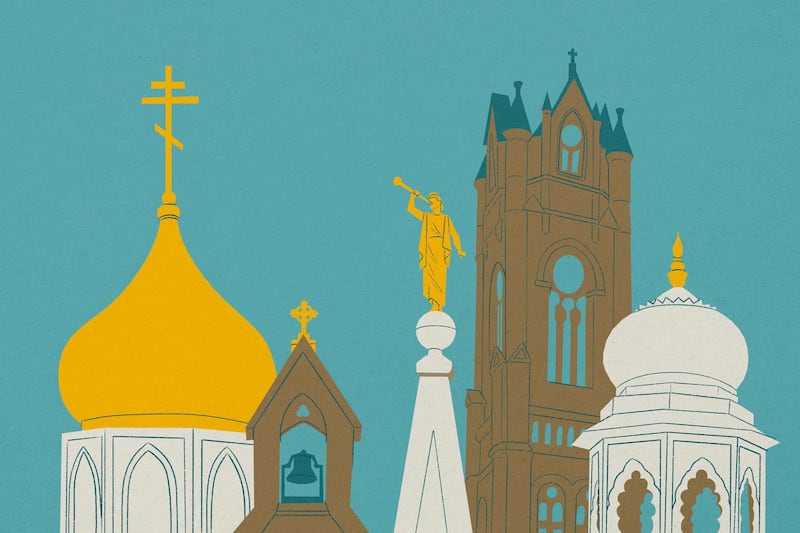Ahead of Pioneer Day, which celebrates men and women who started a new life in the West after fleeing religious persecution, the Sutherland Institute has released a new report showing that many Utahns still see the state as a safe harbor for people of faith.
Around half of likely voters in Utah (49%) say that religious freedom is protected the right amount in the state, and an additional 17% say it’s actually too protected, according to the report, which features results from a survey fielded in May by Y2 Analytics.
Survey respondents said religious freedom is more protected in Utah than it is at the national level. Fewer than 4 in 10 Utah voters (38%) believe religious freedom is protected the right amount in the United States as a whole.
Overall, 69% of likely voters in Utah believe religious freedom protections are either just right or too strong in the state, while 55% say the same about national protections.
The survey is based on online interviews with 642 likely voters in Utah. The margin of error for the full sample is plus or minus 3.9 percentage points.
Robin Fretwell Wilson, a national expert on faith-related laws who is based at the University of Illinois, said Utah deserves its strong religious freedom reputation.
In Utah, “people understand what it means to be marginalized,” she said. “They bend over backwards to make sure other people don’t experience that.”
Religious freedom protections in Utah
In recent years, the Utah Legislature has expanded religious freedom protections in a variety of contexts.
- In 2015, legislators passed what’s known as the “Utah Compromise,” which added religious freedom and LGBTQ nondiscrimination protection to housing and employment laws.
- In 2023, lawmakers boosted protections for religious student-athletes, allowing them to wear faith-related attire during competitions, as the Deseret News previously reported.
- Also last year, legislators included religious freedom and LGBTQ rights protections in a law aimed at improving the adoption process in the state.
- Earlier this year, the Utah Legislature passed a state-level Religious Freedom Restoration Act, which builds off the federal law with the same name. Lawmakers were careful to note that the new law doesn’t displace prohibitions on anti-LGBTQ discrimination.
Wilson highlighted some of these moves during a recent presentation on religious freedom and polarization at the University of Notre Dame. Then and in an interview last week with the Deseret News, she praised Utah’s commitment to reducing polarization by using religious freedom laws as a shield for everyone, not just more conservative people of faith.
“I think Utah lawmakers get religious freedom right by trying to expand protections for all people. They protect religious freedom by protecting everyone,” Wilson said last week.
She added, “The overwhelming arc is trying to find space for everybody to authentically be themselves, and that’s a good thing.”
Support for religious freedom
Utah lawmakers’ efforts to make religious freedom laws serve everyone, not just people of faith, likely help explain why Utahns are so positive about conscience protections.
Eighty-two percent of likely voters in Utah see religious freedom as a net positive for society, and just 3% see it as a net negative, according to the new report from the Sutherland Institute.
The survey showed the support for religious freedom is pretty consistent across different age groups and idealogical camps.
- Young adults, aged 18 to 34, showed higher levels of support than older Utah voters. Fully 95% of the younger respondents said religious freedom is a net positive for society, per the Sutherland Institute report.
- Similarly, strongly conservative respondents were more likely than respondents with other political ideologies — especially strongly liberal Utahns — to support religious freedom.
One group that stands out for its less positive view of religious freedom is Utah voters who are not religious.
While 62% of this group does believe that religious freedom is a net positive for society, that figure is 27 percentage points lower than the share of somewhat religious respondents who believe religious freedom is a net positive, according to the new report.
In the months ahead, the Sutherland Institute will work to make the case for religious freedom among nonreligious or less religious Utahns, leaders told the Deseret News.
The organization worked toward that goal with a report on the social benefits of religion that was also released Tuesday. In it, William C. Duncan, the Sutherland Institute’s religious liberty fellow, discusses how people of faith work to promote freedom for all.


